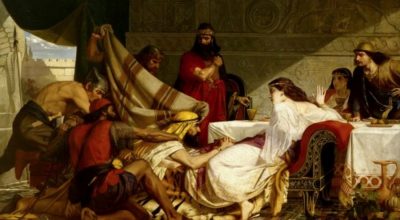
The court system is rigged against anti-police protesters in Chattanooga arrested and charged Sunday over harmless symbolic acts against the white legal political establishment.
By David Tulis / NoogaRadio 92.7 FM
Marie Mott, 32, and Cameron “C-Grimey” Williams are charged by police officers with two counts and by the sheriff’s department with four counts pertaining to two events.
One event involves the taking of a sheriff’s department banner and burning it Thursday and the other involves a blockade of a downtown intersection Friday for an hour. A video shows the group stepping aside to let two firetrucks from the Main Street station pass.
The stacking of charges is important from the side of the authorities who want to make an impression on the public to suggest the evil and criminality of the leaders of the protest movement, which has been entirely peaceful Chattanooga. The sheriff’s department, in the flag burning incident, includes a riot charge.
“Riot” means a disturbance in a public place by three or more people “which, by tumultuous and violent conduct, creates grave danger of substantial damage to property or serious bodily injury to persons or substantially obstructs law enforcement or other governmental function.” These elements at Tenn. Code Ann. § 39-17-301 look as though they will be difficult to prove, even if properly alleged in the charging instrument.
Pressure to bargain
The police-industrial structure of law in Hamilton County brings pressure on the DA’s office and on defendants to settle on a “plea.” The system is so badly out of kilter that prosecutors barely know how to conduct a trial and police officers barely know how to file charges and to do investigative evidence gathering. Across the spectrum in the United States, the plea bargain culture saves the state the trouble of a trial and denies the people in Tennessee their right to have the people evaluate the evidence against them.
The state bill of rights avows, in article 1, section 6, “That the right of trial by jury shall remain inviolate.” Yet DA Neal Pinkston’s office in more than 90 percent of cases works out an arrangement to violate that right — with the state’s victim — the defendant — agreeing to it.
In an interview with Mr. Williams, I suggest he demand his right to a trial by jury, a public trial because he is a representative of his people, and the people in general, and it is important that they see everything the disturbers of the public peace and tranquility want to do to him in their claim he is a criminal.
He and Miss Mott should resist the plea bargain cult, and insist on a public trial. That is particularly important today because the supreme court is violating the constitution by closing courts. It is prohibiting the public from attending trials that are supposed to be public. In demanding a trial, they are effectively demanding an end to the CV-19 shutdown of the access to justice, and also an end to the police abuses that are the focus of their 30-plus days of protest.
It is possible that the charging instruments vs. Williams and Mott will suffer the defects that marred the Pinkston-led indictments against the RICO case defendants. In that case, according to Judge Tom Greenholtz, the indictment failed to name all of the essential elements of the charge of conspiracy. So the case had to be dismissed.
Police and legal systems for decades have gotten away with insufficient charging instruments and failing to name all the essential elements of the alleged offense. It is entirely possible that for each of the charges there are 3 or 4 elements required to be alleged and proven, and that maybe only one or two are alleged. If not every essential element is alleged in the charging estimate, the case has to be thrown out as an offense against due process.
The system is so slack because of overpolicing, police violence, plea bargaining and the unwillingness of district attorney to insist that all members of the public get to exercise their constitutional right to a trial. He knows he has a legal duty to afford them a trial.
Subsidizing police abuse
But the practice of his office is to find a way to avoid this duty. And to avoid it in good faith: He is offering a benefit for the yielding of that right. And that is a reduction in the charges against acts that OSTENSIBLY disturbed the public peace and injured the state.
Neal Pinkston has sufficient power alone, as an elected official, to end the commercial government and the police state. Because his office engages in dickering and trading, he is lowering the value of a criminal case, making of each one a cheap proposition with poorly designed parts, weak evidence, improbable testimony, shabby affidavits, etc. Because he buys in bulk, he gets bulk quality.
He subsidizes the shabby police work and criminal cases emanating from local police departments and the sheriff’s department.
Neal Pinkston alone can stop the overpolicing abuse by telling local department said he will not play with plea bargaining game any more, that he will take all charges to trial.
We should help him along
If every case goes to trial, that means that if police overstock him with cases, they will have to be dismissed in toto under the speedy trial rules.
Mr. Pinkston, however, has no interest in reducing his caseload or bringing justice by reduction of police and prosecutorial machinery.
That would be a counterrevolution by him against the revolution of the state as against the people. It’s not clear that any public pressure of private calculation is sufficient to prompt such a move.



David, thank you for hanging in there with Marie and Cameron.
Your insight that the plea bargaining “system” results in overpolicing is one I have not heard, but it really seems to fit!
A neighbor here in Dallas Bay (about ).1 miles from my home) had her large Black Lives Matter banner removed from her front porch! Undaunted, she and a friend were installing a new homemade one as I drove by just before noon.